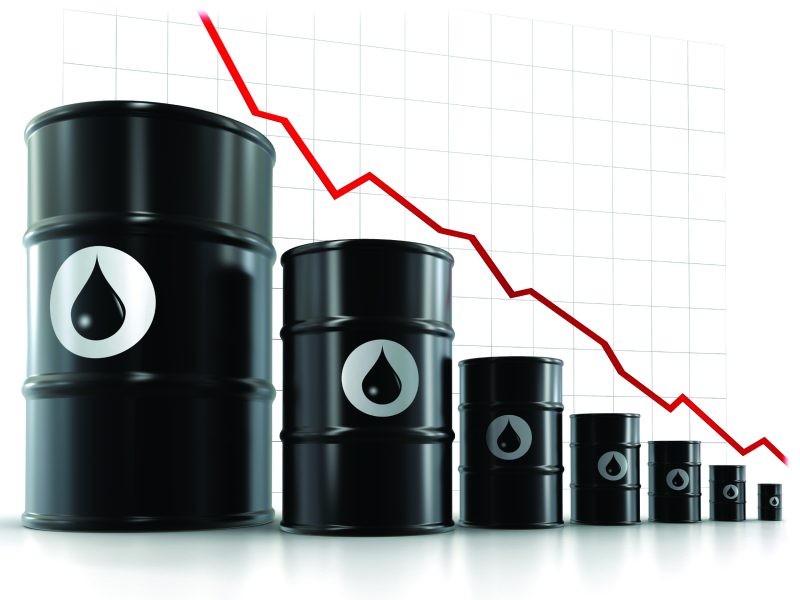The fall in global oil prices seems like good news in Indonesia. But not all is well in ASEAN. Remko Tanis gives us something to think about at the pump.
The fall in global oil prices might seem like only good news. Even with fuel subsidies gone, the price to fill up at your local Pertamina station keeps sliding. Airlines are considering cutting back on fuel surcharges. But not all is well. The price of oil is sliding so fast and going so deep that it may even hurt Indonesia in the end.
Remember November? Only weeks after his inauguration, President Joko Widodo made good on his campaign promise to cut back on the decades-old fuel subsidies. The handout was keeping the government’s budget in a chokehold. The price of a litre of premium gasoline at the pump, then one of the lowest in the world, jumped by a third to Rp.8,500 (US$0.67).
In 1998, protests over fuel price hikes contributed to the fall of President Suharto. This time around, the announced hike sparked only small protests and mainly very long queues at filling stations. Meanwhile, the cut in subsidies kept over Rp.100 trillion (US$7.87 billion) in the government’s wallet to spend on other things.
Then, on the last day of 2014, Mr. Widodo surprised us by slashing the remaining subsidies on fuel, effective immediately. And while tens of trillions of rupiah now remain in the government’s coffers, sticker shock for those filling up at the pump is no more. The price of a litre of unsubsidized fuel, now at Rp.7,600 (US$0.60), is even lower than November’s partly subsidized price.
One single thing gave the president the freedom to move quickly in scrapping the subsidy without igniting public anger: the ever-sliding price of crude oil on the world market. A barrel costing close to US$110 only six months ago currently hovers around the US$50 mark. Analysts do not expect to see it going up anytime soon.
So, good news all around then? The subsidies, which last year totalled up to Rp.230 trillion (US$18.1 billion), were widely seen as the biggest reason for Indonesia’s government deficit. President Jokowi’s predecessor, Susilo Bambang Yudhoyono, while writing the 2015 government budget last year, set aside a whopping one-fifth of total government spending to pay for the fuel subsidies.
That money can now be spent elsewhere. The administration says it plans to invest 60 percent of the freed-up funds in building badly-needed new infrastructure. Other areas that will benefit are education and healthcare. At the same time, the price at the pump is likely to come down further. A barrel of crude oil cost close to US$60 when the government set the current consumer price in early January, but has pointed downwards since.
The reason oil is getting cheaper boils down to this: two of the world’s largest producers are going head-to-head in the battle for market dominance. Last year the United States surpassed Saudi Arabia and Russia to become the world’s largest oil producer. The Americans are profiting from their fracking revolution in the Midwestern states. This extra supply of oil on the market, combined with lagging demand from Europe and China, has been driving down prices since July 2014. Especially hurt by this are the members of the Organization of Petroleum Exporting Countries (OPEC). In terms of oil export, Saudi Arabia is OPEC’s most prominent member.
But while smaller OPEC nations such as Venezuela have called on the other members of the cartel to cut production to halt the decrease of the oil price, Saudi Arabia has decided to put its own interests before that of its fellow OPEC members.
The Middle Eastern kingdom wants foremost to protect its share of the oil market and therefore refuses to cut production. No matter that this forces them to budget for a record US$38.6 billion deficit in 2015 due to falling revenue from oil export. The Saudis’ hope is to drive competing oil producers in nations where production costs are much higher (like in the United States) out of business. That will give them the lead again, and the power to have a decisive say over the price of a barrel. This will take time. So, for the foreseeable future, oil will remain cheaper than it’s been in years.
Most Asian nations are importers of energy, meaning they profit from the collapsing oil price. India, which imports 80 percent of its oil, is especially upbeat. The cheaper oil helps the new Prime Minister Narendra Modi to reduce the country’s deficit, while it also reduces inflation and will help to accelerate economic growth.
Indonesia profits as well. According to research done at the end of 2014 by financial advisory firm Merrill Lynch, every 10 percent drop in the price of oil on the world market adds a tenth of a percent to the growth of Indonesia’s GDP. As things stand now, that means an additional 0.5 percent GDP growth for the country, achieved without any real extra effort.
The add-on is even larger for neighbouring countries, with Thailand and the Philippines being the biggest winners. Yet there are a few countries in the region that are gnawing their teeth, seeing barrels being sold for less and less. These are the only nations here that ship more oil than they import: Malaysia, Myanmar, Brunei and Australia.
Malaysia is Asia’s biggest exporter of oil and thus its biggest loser. Close to a third of the country’s total government revenue is oil-related. Its budget is based on a price of US$105 per barrel. If oil remains cheaper than that for long, which is very likely, Malaysia will be forced into significant spending cuts.
The role of biggest oil exporter in the region used to belong to Indonesia. The rising domestic demand, fuelled by strong economic growth, has changed that. For ten years now, the country has bought more oil on the world market than it sold there. Last year, Indonesia exported 455,000 barrels of crude a day, while importing 506,000 barrels daily, according to the United States Energy Information Administration.
Given these circumstances, cheaper oil seems like a good thing, not only for consumers, but for the oil-importing government as well. It’s not all good, though. There is such a thing as too cheap, finance Minister Bambang Brodjonegoro warned at the end of 2014.
Speaking with journalists, the minister said that if oil becomes cheaper than US$60 a barrel, the trillions of rupiah saved by slashing the fuel subsidy will start to slowly evaporate due to a fall in revenue from oil exports.
Not long after he gave this warning, the price of a barrel of crude Brent oil sunk below that US$60 threshold. The negative effects can already be seen in investment plans of companies working in the oil and gas industries in Indonesia for this year. The combined work budgets for these companies is around 13 percent lower than last year’s expectation of US$25.6 billion, according to the government’s Upstream Oil and Gas Regulatory Special Task Force.
These cutbacks can be exclusively attributed to the falling oil price, which makes it less attractive or even unprofitable to drill oil out of the ground here. Only last year, the country still had the ambition to increase oil production to a million barrels a day. The current daily output is around 850,000 barrels. Now, because of the lagging investments and aging existing fields, analysts forecast the production will continue to slide eventually to 600,000 barrels a day in 2020.
These cutbacks in investments will also mean losses in employment and earnings for industries that deliver products and services to the oil and gas companies. Finance Minister Brodjonegoro said during the same interview at the end of last year that Indonesia had planned to make around Rp.200 to 300 trillion (US$15.74 billion to US$23.61 billion) a year from selling oil. But only if a barrel of Indonesian crude sells for US$105 on the world market. At current levels, the government should be happy to get US$85 a barrel at most, according to World Bank estimates.
With revenues from the oil and gas sector further accounting for close to a quarter of total government income, Brodjonegoro’s worries are understandable. At your local Pertamina or Shell however, it will continue to be mostly smiles as filling up is likely to get even cheaper. Worrying over the more pressing longer term effects: that’s what finance ministers are for.




